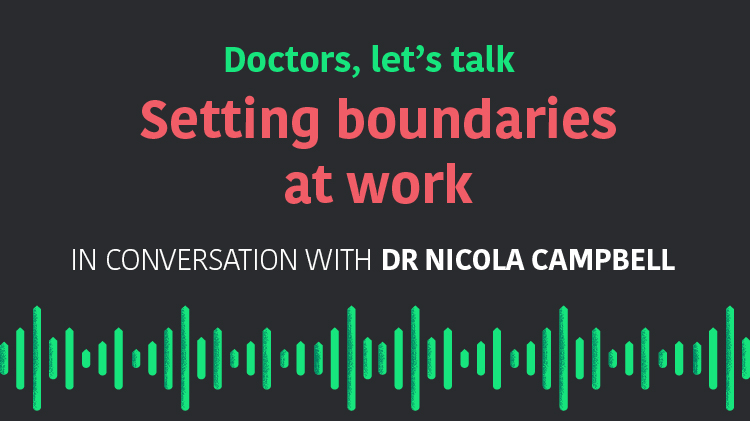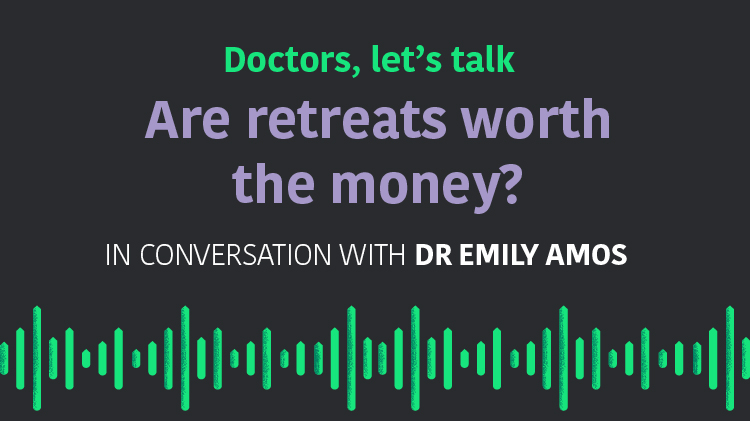Ending the Doctor–Patient Relationship
28 May 2015

Ending the Doctor–Patient Relationship
Not all doctor-patient relationships are successful. From time to time, you may face a situation where it is appropriate to end a therapeutic relationship with a patient.Grounds for ending the doctor-patient relationship
There are a variety of reasons why doctors decide that a doctor-patient relationship has irrevocably broken down. These include:
- unacceptable patient behaviour – this may involve verbal abuse, threatened or actual violence, harassment and other boundary violations including “lovelorn” patients; it may also involve unacceptable behaviour towards practice staff, rather than the doctor
- a loss of mutual trust and respect and/or a breakdown in communication
- continual non-compliance with management recommendations
- criminal acts by a patient, such as obtaining drugs fraudulently or forging certificates
- a patient who tries to coerce the doctor to provide medical treatment that the doctor disagrees with.
Not all therapeutic relationships are going to be successful. It is important to remember that one doctor’s difficult or “heartsink” patient is not necessarily another doctor’s difficult patient. If you are feeling anxious, fearful, angry or emotionally wound up about a particular patient, then you are not being the best doctor you can be, and the patient is likely to receive better and more effective care from another doctor.
Legal obligations
In general terms, there is no legal obligation imposed on a doctor to see any particular patient, except in a genuine emergency situation. Therefore, there is no legal duty to continue a doctor-patient relationship once it has commenced. However, it should be noted that some employed doctors may be under a contractual obligation to see certain patients, e.g. in an Emergency Department setting.
It is also important to be aware that health practitioners must not refuse to treat patients based on unlawful discrimination – that is, treating a particular patient (or group of patients) less favourably than they would another patient without a particular characteristic such as disability, race, religion, sex or gender identity.
Professional obligations
Doctors need to comply with the Medical Board of Australia’s Good Medical Practice: a Code of Conduct for Doctors in Australia when ending a doctor-patient relationship. The Code states:
Ending a Professional Relationship
In some circumstances, the relationship between a doctor and patient may become ineffective or compromised, and you may need to end it. Good medical practice involves ensuring that the patient is adequately informed of your decision and facilitating arrangements for the continuing care of the patient, including passing on relevant clinical information.1
Therefore, the onus is on you to:
- ensure the patient is informed of your decision
- facilitate the handover of clinical care
- forward relevant clinical information.
Ending the doctor-patient relationship: steps to follow
So how should a doctor end a therapeutic relationship? Depending on the circumstances, the doctor-patient relationship can be terminated in a face to face meeting or consultation with the patient, by phone and/or in writing.
Regardless of the method used, it is important to note the following:
- Inform the patient that the doctor-patient relationship has irrevocably broken down and therefore it is in the patient’s best interests to seek ongoing medical care from another doctor. You may also need to inform the referring practitioner, other specialist colleagues involved in the patient’s care and/or the local hospital that you are no longer involved in the patient’s care.
- Advise the patient and, if relevant, the referring practitioner(s) of any outstanding clinical issues that require follow-up and a timeframe for doing this.
- If the patient will be attending another practice, ask the patient to inform your practice in writing of the name of the patient’s new treating doctor so that a copy or a summary of their medical records can be promptly forwarded, to facilitate continuity of the patient’s medical care. In this situation, it is generally appropriate to waive your usual fee for transfer of medical records. You may also wish to provide a transfer of medical record form for the patient to complete.
- Inform your practice staff that the doctor-patient relationship has been terminated, so that no further appointments are made for the patient with you. Also remember to cancel any reminders in the record keeping system.
The key issues are to communicate the termination of the therapeutic relationship in clear and unambiguous terms, “drawing the line in the sand”, and confirming that the decision has been made in the best interests of the patient.
In some situations, it is necessary to end the professional relationship with a patient at a practice level, rather than just with an individual doctor. This may occur when a patient has behaved inappropriately towards staff members or made threats against you, necessitating this step to protect you and your staff.
Dr Sara Bird
Manager, Medico-legal and Advisory Services
MDA National
The provision of advice to Members about ending a doctor-patient relationship comprises 6% of the advisory calls received by our Medico-legal Advisory Services team.
If you find yourself in the difficult situation of having to end a doctor-patient relationship, we encourage you to contact our Medico-legal Advisory Services team for advice and support. In particular, we can assist you in drafting a letter to the patient to inform them about the end of the doctor-patient relationship, to ensure that your legal and professional obligations in this situation are met.
See Ending the Doctor-Patient Relationship – Template Letter for a sample letter which you can adapt to suit your needs.
1. Medical Board of Australia. Good Medical Practice: A Code of Conduct for Doctors in Australia. Available at: medicalboard.gov.au/Codes-Guidelines-Policies/Code-of-conduct.aspx.

Doctors, Let's Talk: Setting Boundaries At Work
A conversation with Nicola Campbell, Psychiatry Registrar, that explores the necessity of setting professional boundaries as a Junior Doctor.
07 Dec 2022

Doctors, Let's Talk: Your Support Network Is Your Net-Worth
A conversation with Nidhi Krishnan, Paediatric Registrar, that explores the value of building a strong network as a Junior Doctor.
07 Dec 2022

Doctors, Let's Talk: Are Retreats Worth The Money?
A conversation with Dr Emily Amos, General Practitioner, International Board Certified Lactation Consultant, and registered mindfulness teacher, that explores the utility of mindful retreats and self-care among Junior Doctors.
07 Dec 2022

Doctors, Let's Talk: Is Quitting Medicine Ever The Answer?
A conversation with Dr Ashe Coxon, General Practitioner, career counsellor, and founder of Medical Career Planning, that explores the issue of dealing with career uncertainty as a Junior Doctor.
07 Dec 2022


